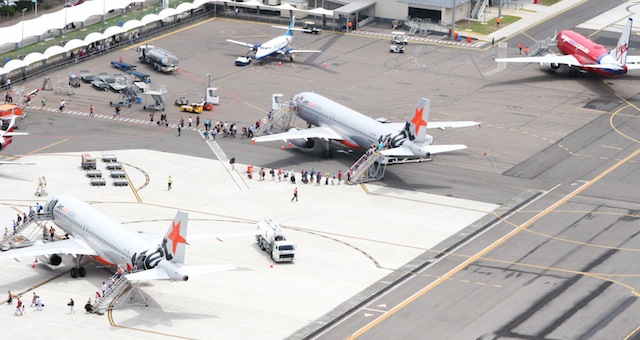
Changing the way passengers are processed at our borders has been finally recognised as a key reform by Australian Home Affairs Minister Jason Clare and the move has been applauded by the Tourism and Transport Forum (TTF).
TTF Chief Executive Ken Morrison said the five-year ‘Blueprint for Reform of the Australian Customs and Border Protection Service’ recognises the need to work smarter to process the record number of international travellers expected in years to come.
“Our airports and seaports create the first impression of the country for tourists and Australia can do better. We need a border processing system that can deal with growing travel demand into the future,” Morrison said.
“Customs currently does an excellent job by international standards, but maintaining this has been made harder by funding cuts coming at the same time as increasing passenger numbers.
“It is estimated that by 2015 the federal government will collect over AUD$1 billion from the tax established to fund the border agencies, the Passenger Movement Charge, but in the same year will allocate only AUD$239 million on passenger processing.
“Other countries, particularly those in Asia and Europe, are making better use of technology to process ordinary passengers. Our border agencies must embark on similar programs.
“SmartGate, the self-service passport kiosk, is a good start. But for every SmartGate terminal installed, personnel funding gets cut further, despite many new tourists from Asia requiring more detailed processing by humans.
“Just as SmartGate has freed frontline officers from the task of stamping passports, a wider reform to the whole passenger facilitation process is needed to ensure that our borders remain secure while travellers’ lives are made easier.
“Australia is one of few countries where Customs officers process GST refunds for travellers.
“Similarly, outbound border checks could be replaced with police interception at boarding gates for those on no-fly lists. This would allow better use of officers on priority tasks.
“We welcome the partnership with the Australian Federal Police but note that there is also work to be done to ensure there is no duplication between Customs and the other border agencies, chiefly Biosecurity.
“Nowhere is this more evident than at regional airports unable to offer flights to New Zealand because of the onerous costs associated with multiple border agencies,” Morrison said.

